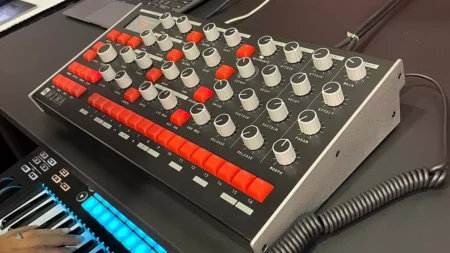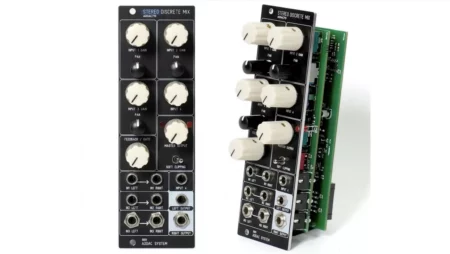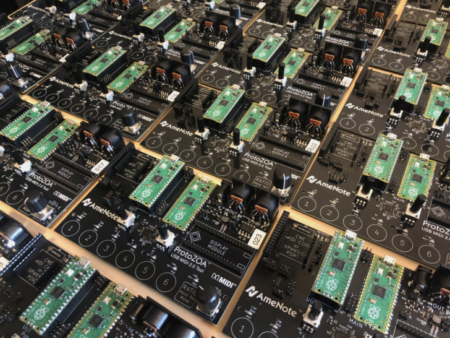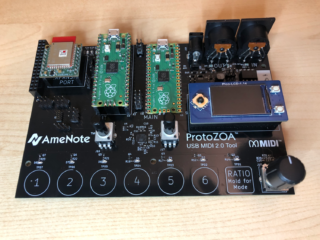Melbourne Instruments NINA, that synth with the motorised knobs, is finally heading your way soon
Nina, the at-the-time mysterious synth which monopolised much pre-NAMM talk earlier this year, is finally about to be release soon, with pre-orders now open ahead of a December 2022 shipping date.
That pre-show video was mainly driven by the motorized automation in an anonymous teaser video – self-turning knobs! – but there’s many more features.
The most notable non-knob features are the variable shape oscillators, which can continuously morph wave-shape between triangle and sawtooth and the hackable Open Source software running on a Raspberry Pi 4 with Elk Audio OS.
Features
- 12 Voice Polyphony
- Fully analog signal path
- Motorized recallable and automatable control panel using long-lasting zero wear encoders with the feel and precision of analog pots
- Variable shape triangle oscillators. Continuously morph wave-shape between triangle and sawtooth to find new timbres. Different to a traditional blend
- 4 pole transistor ladder VCF with modulatable resonance
- Huge voice-level filter overdrive
- Digital Wavetable Oscillator
- Sampling capability
- Deep Modulation Matrix. 16 sources to 27 destinations
- Patch morphing for complex expressive effects
- Stereo 4 Quadrant VCAs with Infinite Panning effects
- Onboard digital effects
- Multitimbral, layered, split, or overlapping
- Hackable Open Source software built on a powerful Raspberry Pi 4 running Elk Audio OS
Now, the first run of 500 units is up for pre-order, with a $500 discount on the first 100 secured, or $250 off of any order before 1 Nov. 2022. Thereafter, NINA #CommissionsEarned will set you back $3500.
Find out more on the Melbourne Instruments website.
“As an Amazon Associate, I earn from qualifying purchases”





